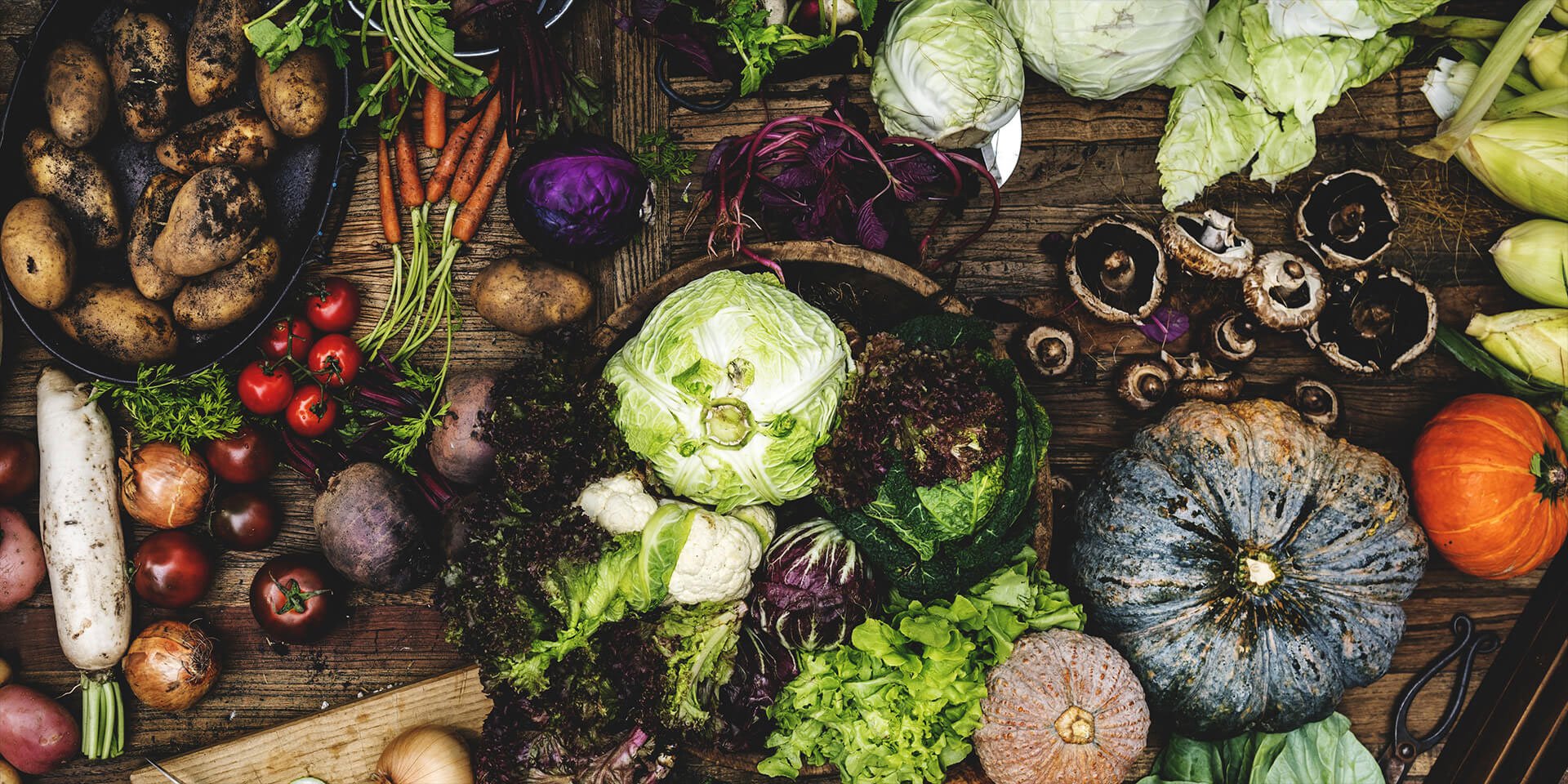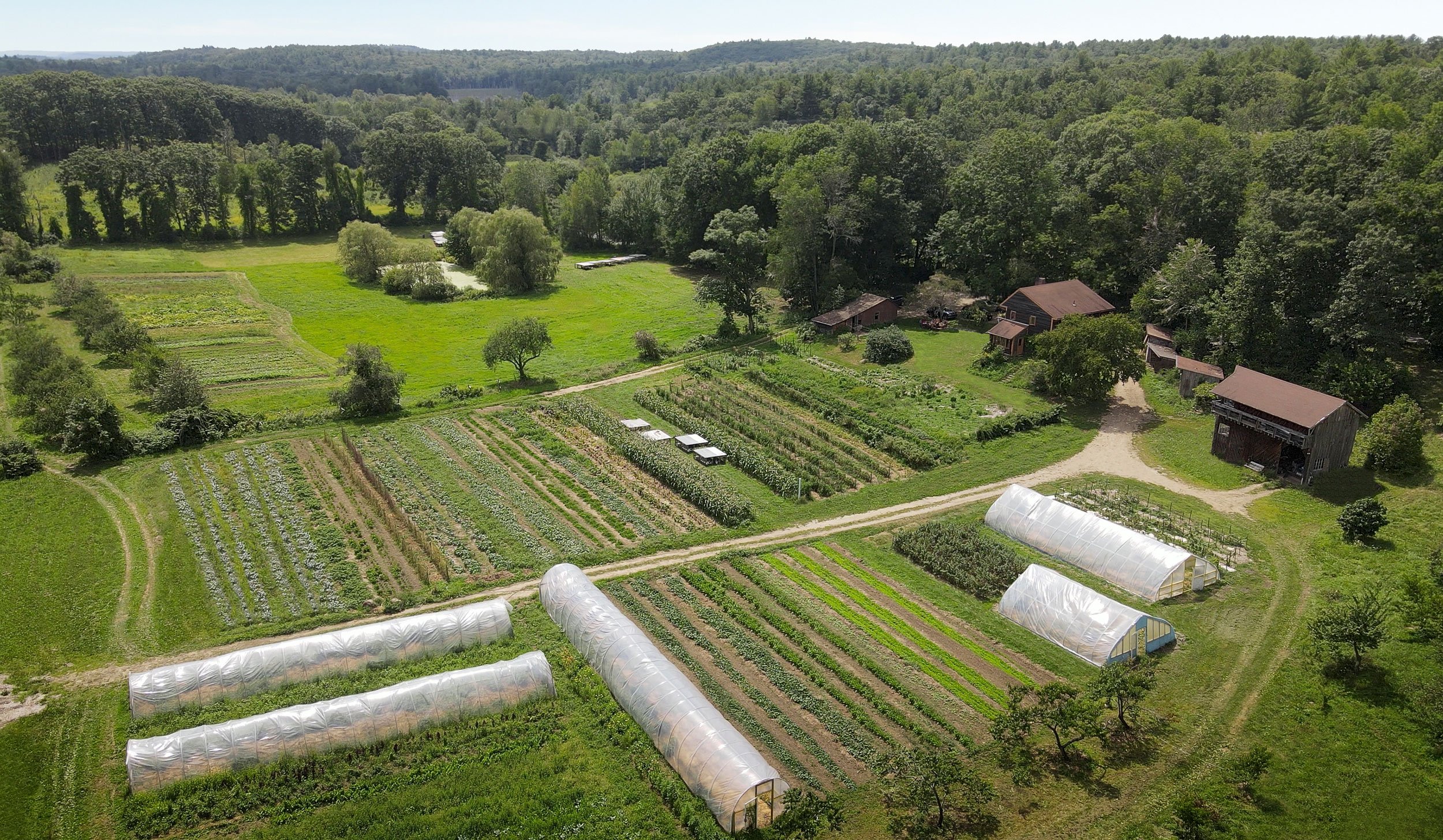

“This is the World’s First Certificate Level Masterclass in
NUTRIENT DENSE FOOD PRODUCTION”
Course Overview
This certificate-level course, taught by Dan Kittredge, founder of the Bionutrient Food Association, draws on over 40 years of farming experience and 15 years of teaching. It focuses on producing nutrient-dense crops—those with superior nutritional content, pest resistance, and better flavor—by fostering healthy soil with high microbial activity.
Increased Nutrient Density →
Boosts Plant Health & Pest Resistance →
lncreased Productivity & Profitability
This creates a win/win/win scenario, benefiting the environment, the farmer and human health! The course covers the essential environmental conditions and management practices that support soil life, and offers valuable insights into producing nutrient-dense crops. This will ensure plants thrive through their symbiotic relationship with the soil microbiome.
Ready to enhance your farming practices and improve:
Crop health?
Productivity?
Profitability?
Human health?
Take the next step in supporting both your farm, the environment and human health while reaping a healthy return!

“We could do a lot of good in this world if we could increase the nutrient levels in food.”

TOPICS INCLUDE
Bio-Accumulator Plants & Transmutation: How plants naturally address mineral deficiencies in the soil.
In-Season Monitoring: Using tools like conductivity meters, refractometers, and sap tests to guide your crop management decisions.
Plant Visual Analysis: Techniques for assessing plant health and adjusting management strategies accordingly.
Consciousness & Intention: Exploring the mindset of working with nature—what makes a green thumb and how it impacts plant health.
Antenna Systems & Frequency: How nature communicates, and how pests select which crops to target based on these signals.
Para-magnetism & Energy: Understanding energy forces in the land and their role in sustainable farming.
Reversing Desertification: Transforming agriculture to restore the land—how we can green it through our practices.
Climate Disruption & Restoration: How carbon and the water cycle play key roles in reversing climate change and improving farm resilience.
Human Health & Chronic Disease: The role of nutrient density in improving health, reversing chronic conditions, and boosting overall well-being.
Systemically Sucking the Life Force Out of Agribusiness & Healthcare: How small shifts in our actions can create positive change in the world and benefit your farm’s bottom line.
You Are What You Eat: Redefining food quality to include the mental, emotional, and social aspects of our diets and their impact on our overall health.
Elders & Their Insights: Lessons from lesser-known pioneers who shaped our understanding of sustainable farming practices and how they can guide us today.
Reconnecting with the Land: Creating a vision for human culture that re-indigenizes our bloodlines, models a healthy culture for future generations, and offers an alternative to the wage slavery cycle.
Honoring Our Stewardship of the Land: Recognizing our responsibility to care for the earth as stewards, working with nature to create a harmonious balance that sustains the land for future generations.
Key Topics Covered:
Understanding Nutrient Density: Defining nutrient density, the research behind it, and how meters help in measuring it.
Plant Life Cycles: Understanding the growth phases of plants—from early development to reproduction—and their similarities to animal life cycles.
Epigenetics & Seed Quality: The impact of seed quality on plant health and how to achieve superior seeds.
Inoculants: Creating your own, understanding nature’s model, and identifying what works effectively.
Water: Exploring water coherence, structure, and sufficiency—why it’s more than just H₂O.
Soil Chemistry & Structure: Understanding pH, its meaning, and when to disregard it.
Mineral Balancing: Interpreting soil tests and correcting mineral deficiencies.
Minerals & System Function: Why a full spectrum of minerals is essential for optimal plant function and health.
Sourcing Minerals from Nature: How to obtain minerals at minimal cost, naturally.
Tillage & Soil Health: Best practices for soil aeration and preservation to support plant vitality.
Cover Crops & Polycultures: The role they play in promoting soil health and increasing biodiversity.
Crop Rotation: Understanding its importance for soil health and plant resilience.
Weeds – Friend or Foe?: Re-evaluating the role of weeds and managing them for better productivity.
Pest & Disease Resistance: Strategies for growing resilient plants naturally, improving plant health and reducing costs.
Unconscious Plant Trauma: Identifying and stopping harmful practices that damage plant health.
Fertilizers & Amendments: Understanding the difference and how nature handles them to improve plant nutrition.
Compost: Exploring the natural process of composting and how to replicate it on your farm to enrich the soil.

“The fastest potential point to kickstart this transition to more regenerative approaches, more farms, and more soil being regenerated is the focus on quality.”

Course Process
This course is taught over four days in person, with the first two days in autumn focusing on autumn and winter topics, and the second two days in spring focusing on spring and summer topics. The majority of time is spent in a classroom setting, ensuring all attendees have the opportunity to ask questions, while roughly a quarter to a third of the time is spent in the field demonstrating techniques and principles.
CERTIFICATION
After completing the presentation component of the course, attendees who wish to complete the certificate component will be expected to document their practices and results, demonstrating excellent Brix readings in five separate crops.
All details of the practices used to achieve this high level of crop production will then be shared publicly to support a global network of crop producers in reaching this standard of excellence.
SCHOLARSHIP OPTION:
With a cost of $1,250 USD for the course, participants with financial need are invited to apply for available scholarships. Those who wish to complete the certificate level of the course must pay the full course fee before receiving their certificate.

“What has been shown is a correlation between soil health and nutrient density.”

Nutrient Dense Food Production
$1250 USD (conversion rates apply)
We will cover the foundations of understanding how to grow nutrient dense crops by exploring the history of agriculture, climate disruptions, water cycles, roles of weeds, cover crops, soil aeration, pest and disease resistance, establishing perennials, composting, food for enhancing human health and defining nutrient density. You will learn mineral balancing by using soil tests to identify mineral deficiencies and then calculate the quantities of minerals necessary to address deficiencies.
Group discounts of 2+ are available, please email Admin@DanKittredge.com
Apply for a scholarship
Those participants with financial need are invited to apply for scholarships which are available. Limited seats are available and is determined based on application.
Please reach out by following the application button below and we will follow up with you.





